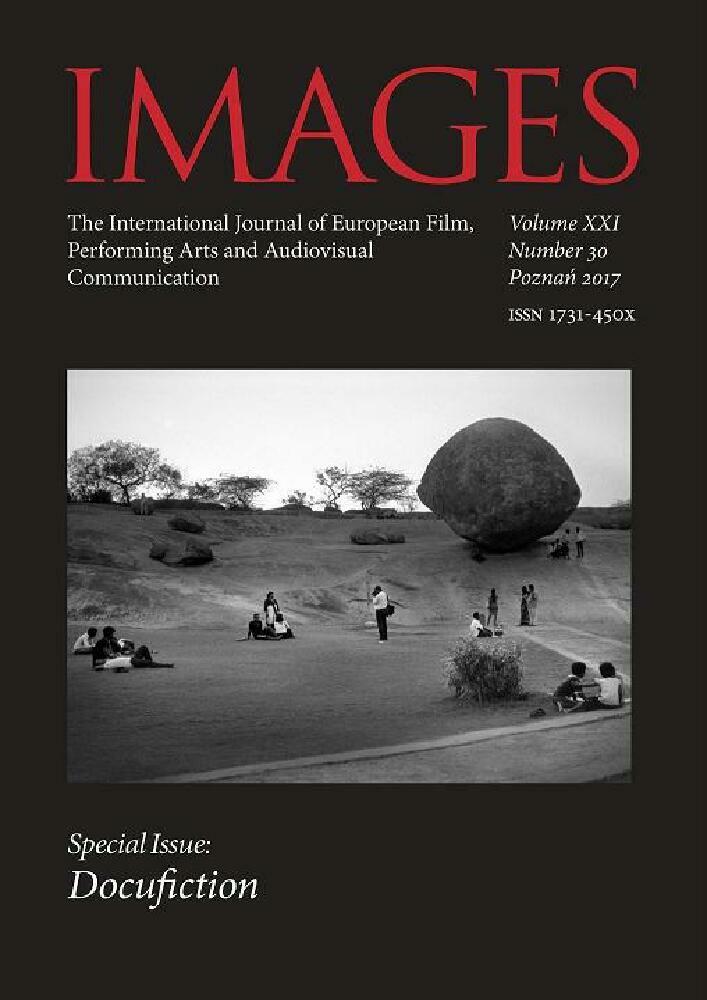Abstrakt
The starting point for this paper is the statement that we are witnessing a “mock-documentary boom” in contemporary cinema. Viewers today can be surprised and confused by the variety of “intercrossings” that are used in documentary and fictional strategies. The fact that there has been a growing number of films that do not respect the traditional division between fictional and non-functional cinema deserves deeper consideration. The introduction of the paper is focused on historical sources and classifications of this complex phenomenon (for example: the brothers Lumière tradition contrasts with that of Méliès). The main body of the paper is concentrated on the question of what cinema can offer in lieu of a documentary paradigm. It also tries to explore ontological and epistemological perspectives which can clarify some of the reasons for the popularity of mock-documentary and docufiction productions. It ends with a suggestion that the cinema is a domain of fakes of reality regardless of whether fictional or non-fictional narration is used to tell their stories.
Bibliografia
Deleuze G., Cinema 1. The Movement-Image, trans. H. Tomlinons and B. Habberjam, Minneapolis 1995
Deleuze G., Cinema 2. The Time-Image, trans. H. Tomlinons and R. Galeta, Minneapolis 1995
Gunning T., Attractions: How they come into the world, in: The Cinema of Attractions Reloaded, ed. W. Strauven, Amsterdam 2006
Gunning T., Przed filmem dokumentalnym. Wczesne filmy nonfiction i estetyka widoku, in: KINtop. Antologia wczesnego kina, vol. 1, ed. A. Dębski, M. Loiperdinger, Wrocław 2016
Gunning T., The Cinema of Attraction[s]: Early Film, Its Spectator and Avant-Garde, “Wide Angle” 1986, 8.3–4, <http://www.columbia.edu/itc/film/gaines/historiography/Gunning.pdf> (accessed on March 10, 2017)
Kosińska-Krippner B., Mock-documentary a dokumentalne fałszerstwa, “Kwartalnik Filmowy” 2006, pp. 54–55
Kracauer S., Theory of Film. The Redemption of Physical Reality, New York 1960, <https://archive.org/stream/theoryoffilmrede00krac#page/30/mode/2up> (accessed on April 4, 2017)
Loiperdinger M., Przyjazd pociągu Louisa Lumière. Mit założycielski nowego medium, in: KINtop. Antologia wczesnego kina, vol. 1, ed. A. Dębski, M. Loiperdinger, Wrocław 2016
Manovich L., Prolog: zbiór danych Wiertowa, in: Język nowych mediów, trans. P. Cypryański, Warszawa 2006, pp. 31–49
Pabiś-Orzeszyna M., Kino atrakcji: historia, krytyka, mapa i kartoteka, “Kultura Popularna” 2013, 3 (37)
Przylipiak M., Poetyka kina dokumentalnego, Gdańsk-Słupsk 2004
Roscoe J., Hight C., Faking It: Mock-documentary and the Subversion of Factuality, Manchester 1998
Strauven W., From “Primitive Cinema” to “Marvelous”, D. Tomasovic, The Hollywood Cobweb: New Lows of Attractions, V. Sobchack, “Cutting to the Quick”: Techne, Physis, and Poiesis and the Attractions of Slow Motion, in: The Cinema of Attractions
Reloaded, ed. W. Strauven, Amsterdam 2006
Totato D., Introduction to André Bazin, Part 1: Theory of Film Style in its Historical Context, André Bazin Revisited, “Off Screen” 2003, vol. 7, issue 7, July, <http://offscreen.com/view/bazin4> (accessed on March 10, 2017)
Wierow D., Człowiek z kamerą. Wybór pism, Warszawa 1976
Zourabichvili F., The Eye of Montage. Dziga Vertov and Bergsonian Materialism, trans. M. McMachon, in: The Brain is the Screen, ed. G. Flaxman, Minneapolis 2000
Licencja

Utwór dostępny jest na licencji Creative Commons Uznanie autorstwa – Użycie niekomercyjne – Bez utworów zależnych 4.0 Międzynarodowe.
